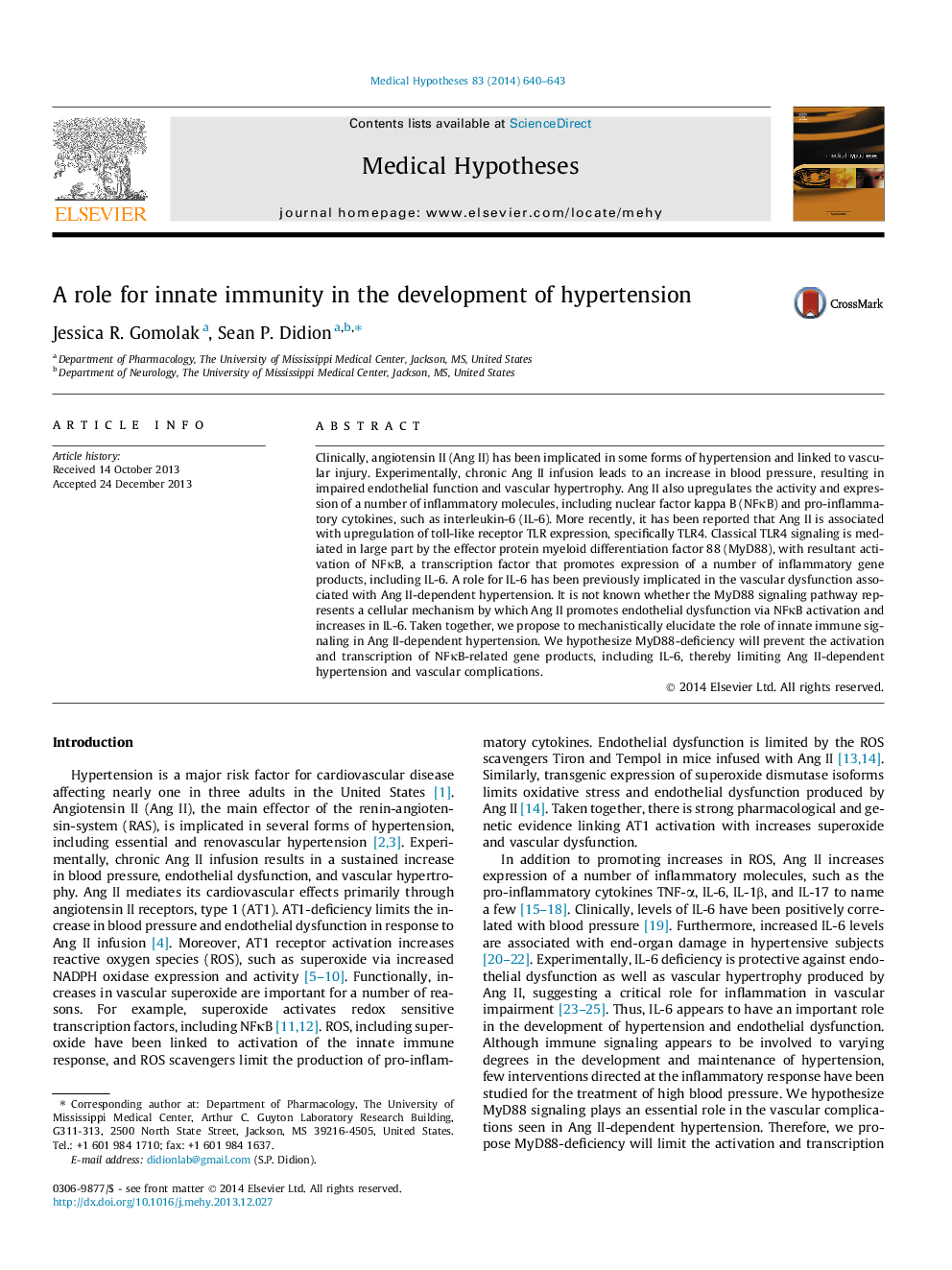| Article ID | Journal | Published Year | Pages | File Type |
|---|---|---|---|---|
| 5811514 | Medical Hypotheses | 2014 | 4 Pages |
Clinically, angiotensin II (Ang II) has been implicated in some forms of hypertension and linked to vascular injury. Experimentally, chronic Ang II infusion leads to an increase in blood pressure, resulting in impaired endothelial function and vascular hypertrophy. Ang II also upregulates the activity and expression of a number of inflammatory molecules, including nuclear factor kappa B (NFκB) and pro-inflammatory cytokines, such as interleukin-6 (IL-6). More recently, it has been reported that Ang II is associated with upregulation of toll-like receptor TLR expression, specifically TLR4. Classical TLR4 signaling is mediated in large part by the effector protein myeloid differentiation factor 88 (MyD88), with resultant activation of NFκB, a transcription factor that promotes expression of a number of inflammatory gene products, including IL-6. A role for IL-6 has been previously implicated in the vascular dysfunction associated with Ang II-dependent hypertension. It is not known whether the MyD88 signaling pathway represents a cellular mechanism by which Ang II promotes endothelial dysfunction via NFκB activation and increases in IL-6. Taken together, we propose to mechanistically elucidate the role of innate immune signaling in Ang II-dependent hypertension. We hypothesize MyD88-deficiency will prevent the activation and transcription of NFκB-related gene products, including IL-6, thereby limiting Ang II-dependent hypertension and vascular complications.
